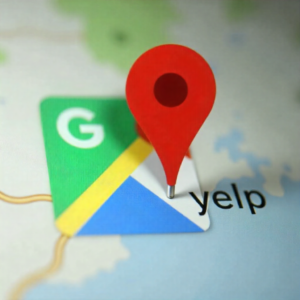Does Google Lie? My Take on the Debate


You might be wondering, “Does Google lie?” It’s a provocative question — and one that has been stirring up debates among marketers, tech experts, and everyday users alike.
Google processes over 3.5 billion search queries per day and dominates with more than 90% of the global search engine market share. With such power, it’s only natural to ask whether Google’s search results are always neutral, accurate, and free of bias.
As a company that has shaped the very way we interact with the internet, Google has immense influence on websites, businesses, content creators, and even politics. But with recent document leaks, accusations of bias, misinformation issues, and the rise of AI in search, the debate has reached new heights.
So let’s dig deeper. Does Google intentionally mislead us, or are its priorities — like advertising revenue, user behaviour, and algorithm changes — creating the perception of dishonesty?

In 2024, a massive leak of internal Google documents shook the SEO industry. For years, Google denied using metrics like Domain Authority (DA) or Chrome browser data to rank websites. But the leaks revealed otherwise.
According to the documents, Google’s search algorithm does consider DA, user clicks, engagement metrics, and Chrome data, contradicting its long-standing statements. These revelations led many marketers to question whether Google had been fully transparent — or whether it had simply provided “half-truths” to keep its ranking system a mystery.
Other leaked details included:
Use of Click Data: Click-through rates from Chrome and Android heavily influence rankings, even though Google downplayed their role.
PageRank’s Continued Power: Despite saying links matter less, Google’s algorithm still leans heavily on link analysis, reinforcing the importance of high-quality backlinks.
Allowlisting of Domains: Certain authoritative sources can be allowed for sensitive topics like elections or COVID-19, while other sites are quietly demoted.
Demotion Factors: Low-quality or misleading websites face penalties based on user dissatisfaction signals and mismatched links.
Clearly, this paints a more complex picture of Google’s ranking algorithm than the company has admitted publicly.

Google has often been accused of bias in its search results.
In 2016, psychologist Dr. Robert Epstein suggested that Google search could have swayed millions of undecided voters simply by altering the ranking of political content.
In 2018, President Donald Trump claimed that Google rigged results to suppress conservative news outlets. While Google denied the allegation, the perception of favouritism lingered.
Former employees have also alleged internal bias, further fueling theories about censorship and selective visibility.
Whether intentional or not, the way Google prioritises or suppresses information can significantly influence public opinion — especially when misinformation and fake news spread so easily online.
Politics aside, let’s talk about money. Google is not just a search engine; it’s also one of the world’s largest tech companies, generating the bulk of its income from Google Ads.
A Wall Street Journal investigation revealed that Google’s advertising revenue model sometimes blurs the line between organic results and paid placements.
In lawsuits, critics claimed Google colluded with Facebook to dominate ad space and extract higher costs from businesses. Smaller companies often accuse Google of prioritising ads from bigger players, making it harder for them to compete.
For users, this means search results are not always a neutral reflection of relevance — targeted ads, ad revenue, and advertiser influence also shape them.

The word “lie” may be too harsh. Google rarely publishes outright false information. Instead, the problem lies in what it emphasises, suppresses, or monetises.
Content Quality vs. Competition
Google pushes high-quality content to the top. That sounds fair — but it often favours larger corporations that can afford SEO teams, while small businesses and independent creators struggle.
Advertiser Influence
Paid ads dominate prime visibility. During competitive queries, the first page can be filled with ads, burying organic results.
Google Products in Results
Platforms like Google Maps, YouTube, and Google News frequently get priority placement — sometimes at the expense of third-party sites. Yelp has long accused Google of pushing its own local reviews above more relevant ones from competitors.

So while Google may not outright “lie,” it certainly manipulates what we see — guided by its own business goals and user data.
Google’s algorithm is constantly evolving. Updates like Panda, Penguin, and Helpful Content were designed to weed out spammy content — but they also caused traffic crashes for thousands of legitimate sites.
While Google claims to support trustworthy information, these changes often give tech giants a smoother path, while small publishers are left scrambling.
Google collects massive amounts of data from Gmail, Chrome, and Android. In 2019, it was fined for mishandling children’s data on YouTube.
Critics argue this data isn’t just used to improve search results but also to refine ads and maximise profits.
Google personalises results heavily. While this makes searches more relevant, it risks creating filter bubbles.
For example, if you frequently click politically skewed results, Google may reinforce that perspective in future searches — limiting exposure to diverse viewpoints and sometimes amplifying misinformation.
Focus on Quality: Publish original, fact-checked, user-focused content.
Stay Informed: Follow reliable industry sources like Search Engine Land to track updates.
Diversify Channels: Don’t depend solely on Google. Drive traffic from social, email, and platforms like LinkedIn.
Yelp vs. Google: Yelp has repeatedly accused Google of manipulating results to favour its own services. Criticism of Google documents these disputes.
Small Business Impact: Local businesses, from bakeries to gyms, often struggle against national chains. Even with better content, Google’s algorithm tends to reward advertisers with deeper pockets.
So, does Google lie? Not exactly. But it does shape reality in ways that often benefit itself, its advertisers, and its products.
Google prioritises high-quality content, authoritative sources, and advertiser relationships — but that doesn’t always align with fairness. Smaller players, independent creators, and even whole industries can get sidelined.
The best path forward? Awareness. Understand how Google’s algorithm works, stay vigilant about misinformation, and diversify your digital presence.
Because in the end, Google doesn’t need to “lie” — its control over search queries, ad space, and algorithms is powerful enough to shape what billions of people see as truth.
1. Does Google really lie in its search results?
Not directly. Google doesn’t usually publish false information, but its search engine results are shaped by factors like Google’s algorithm, advertising revenue, user behaviour, and advertiser influence. This can create a perception of bias.
2. Why do some websites rank higher than others on Google?
Ranking depends on Google’s ranking algorithm, which considers factors such as backlinks, content quality, engagement metrics, and sometimes even user behaviour data from Chrome and Android. Larger tech companies and authoritative sources often gain an unfair advantage due to stronger SEO strategies.
3. How does Google make money from search?
Google’s primary income comes from Google Ads. Businesses pay for ad space, targeted ads, and relevant ad placements in Google search results. This system fuels Google’s massive ad revenue and advertising revenue, sometimes blurring the line between paid and organic listings.
4. Can Google results spread misinformation or fake news?
Yes. While Google tries to highlight trustworthy information, its algorithms can sometimes amplify misinformation, conspiracy theories, and fake news, especially when personalisation creates echo chambers. That’s why critical evaluation of sources is important.
5. What role does artificial intelligence play in Google search?
AI increasingly powers Google’s search algorithm to improve results, predict search queries, and deliver high-quality content faster. However, critics argue that AI can also reinforce biases, making transparency even more crucial.
6. Why does Google favour its own products in search results?
Google has been accused of prioritising Google Maps, Google News, YouTube videos, and other services in Google’s results. Cases like Yelp vs. Google highlight concerns that Google promotes its own platforms over independent websites.
7. How can businesses adapt to Google’s biases?
By focusing on search engine optimisation, producing high-quality content, monitoring Google Analytics, and diversifying traffic sources beyond one default search engine. Relying solely on Google search can put businesses at risk of sudden algorithm updates.